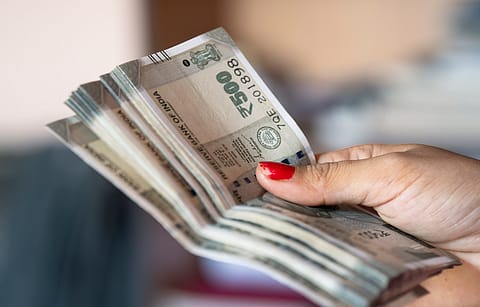SC tightens rules: Courts, registrars must report cash deals over ₹2 lakh to income tax authorities
Experts argue that this step shows that the judiciary is doubling down on the government’s existing measures to combat the cash economy and its added side effects.

In an important move to stop black money and tax evasion, the Supreme Court has said that all courts and property registration offices must report cash payments above ₹2 lakh to the Income Tax Department. If someone files a case or registers a document that mentions receiving ₹2 lakh or more in cash, it must be reported. The Court also warned that government officials who fail to do this will face action from the top officials in their state or union territory.
Lokesh Shah, Partner, IndusLaw, said, "The Supreme Court ruling does not provide a new tool to the Revenue authorities to scrutinise property transactions. Under the Income Tax Act, 1961, Section 269ST exists (since 2017) to curb black money by digitalising the transactions above ₹200,000. The law under Section 269ST bars any person from receiving money in excess of ₹200,000 in aggregate from a person in a day, or in respect of a single transaction, or in respect of transaction relating to one event from a person, otherwise than through an account payee cheque or bank draft or use of electronic clearing system or any other electric mode."
This ruling will ensure that the law in force is successfully implemented and that the taxpayers abide by the law by not dealing in cash transactions above ₹200,000, especially for property purchases, experts opine. "The directions given by the Supreme Court to intimate the income tax department for cash transactions above ₹200,000 will certainly augment the Government’s goal of building a formal and digital economy. Mandatory reporting by courts and sub-registrars to income tax authorities shall not impact civil litigation in any way, as income tax proceedings will run in parallel to any civil proceeding. Income tax proceedings, being independent proceedings, will not interfere with the civil litigation," said Shah.
Experts also argue that this step shows that the judiciary is doubling down on the government’s existing measures to combat the cash economy and its added side effects.
Gouri Puri, Partner, Shardul Amarchand Mangaldas & Co., said, "Like many other developing countries, India has also grappled with the issues surrounding the key sectors of its economy being largely cash-based. In the absence of a record trail, data collection is challenging, and unaccounted transactions are difficult to audit, which in turn has facilitated tax evasion."
To curb the use of cash and promote digital transactions, several amendments have been made to Indian tax laws. Businesses are denied tax deductions for expenses exceeding ₹10,000 if paid in cash. Similarly, certain tax incentives—such as those related to research and development, employment generation, and depreciation on capital expenditure—are not available when payments are made in cash. Cash payments of ₹20,000 or more for the purchase or repayment of immovable property are expressly prohibited. Additionally, cash transactions exceeding ₹2,00,000 are barred altogether.Under presumptive taxation schemes, lower tax rates apply to non-cash transactions, and businesses with a lower share of cash dealings are exempted from mandatory audits. Restrictions have also been placed on the acceptance of cash donations by charitable organisations and political parties.
"Third-party reporting mechanisms were built into tax rules for reporting cash transactions exceeding a specified value. Moreover, a person who deposits more than ₹10 million into their bank account is mandatorily required to file a tax return. A nominal withholding tax was imposed on cash withdrawals from banks above ₹10 million to track cash withdrawals. Finally, the Indian Government has given a major boost to enhance the digital payments infrastructure under its “Digital India” drive. GST is also presented as a tool for formalising the economy by bringing informal sector enterprises into the tax net," said Puri.